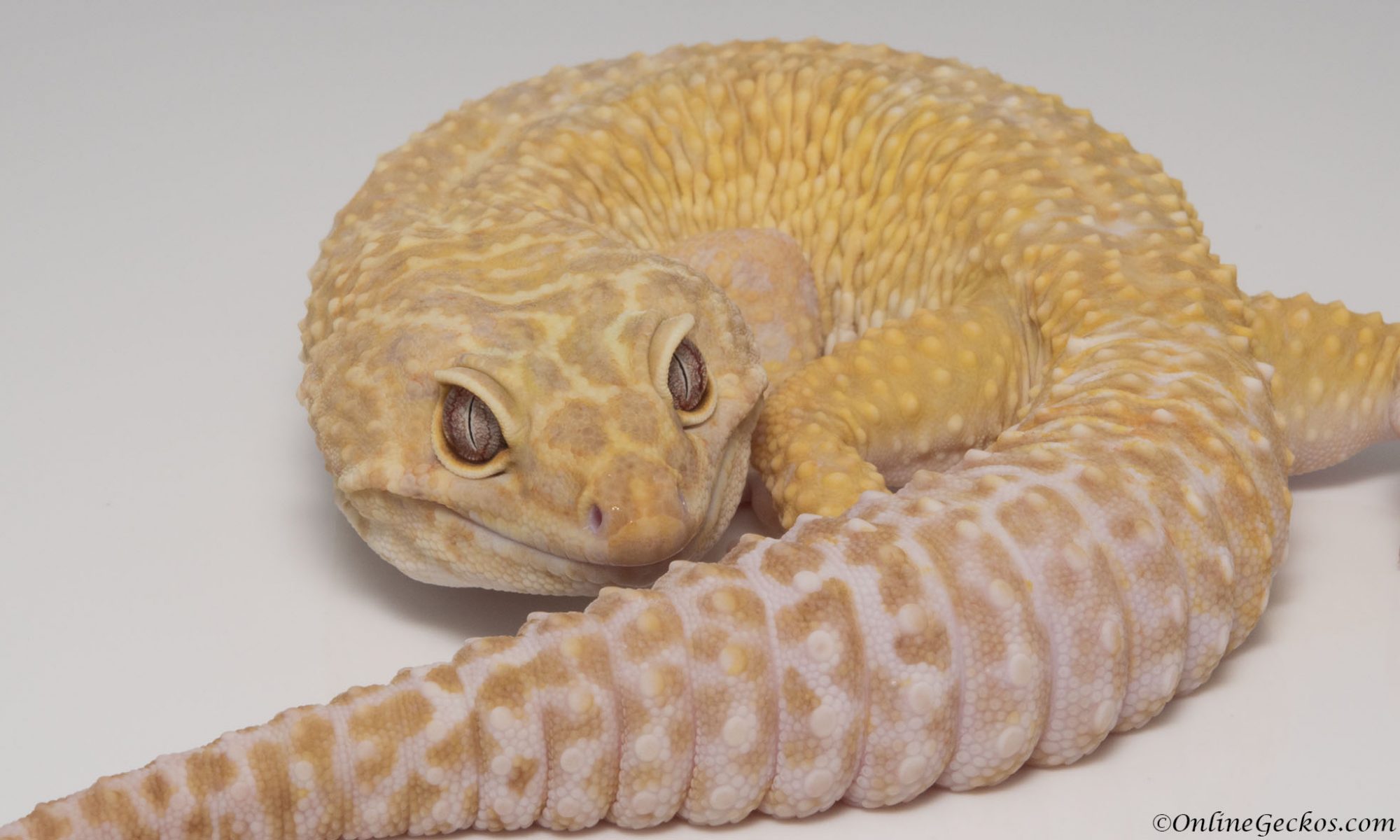I initially made this post on a gecko forum, but figured it may be helpful to those that find my blog via google search in the future. In this “So You Want To Breed” blog article, I’ll list the do’s and don’ts of breeding leopard geckos. This is a general guide for new breeders. Feel free to add comments to what I may have missed.
Don’t:
-Don’t mix the 3 albino strains (tremper, bell, rainwater), they are not compatible.
-Don’t breed if you are not sure of the genetics behind the parents.
-Don’t breed if you can’t afford to feed, house, and care for the hatchlings. From one single pairing you can expect 6-16 eggs.
-Don’t breed if you can’t afford unexpected vet costs when/if you should need to take your geckos to see a vet. Things happen, sometimes they get sick, sometimes they need specialist help. Make sure you have money stashed away for emergencies.
-Don’t breed if you see any abnormalities or genetic defects on your geckos, these include but not limited to tail kinks, eye crinkles, over/under-bite, crooked spine, etc.. Also don’t breed if your geckos suffer health issues such as MBD (metabolic bone disease), or severe enigma syndrome.
-Don’t breed if you are going off to college soon, then expect your parents to take care of your geckos & hatchlings. It’s a disaster in the making. Don’t breed if you are the travel type and spend a lot of time away from home. When you start breeding, you pretty much have to be there for your geckos, especially hatchlings that require daily feeding and care taking.
-If you’re an adult, don’t breed without consulting with your husband, wife, b/f, g/f first. Not everybody enjoys having creepy crawlers in their homes. If you’re expecting kids, chances are you’re going to need that room for your kids in the future.
-Don’t skimp on incubators, I’ve learned my lesson.
-Don’t quit your day job expecting to make a living off breeding and selling geckos, most breeders do not make money, most take quite a few years before they even break even. Don’t expect to be strapped of cash and then counting on the hatchlings to make your money back. There’s no guarantee you’ll be able to sell them, or at least sell them at a price you think you can sell them at.
Do:
-Do make plenty of room for your geckos, people tend to underestimate the amount of room required for new hatchlings. Once they start popping they each need their own enclosures.
-Do breed your own feeders, hatchlings/juveniles will eat a lot, and they eat every day. It becomes very costly when you have to keep buying bulks of 2,000-5,000 mealworms or 500 roaches often. I breed my own, but even I run out of them from time to time.
-Do spend a lot of time observing your geckos, sometimes they need help with shedding, sometimes they need help with feeding. It’s like taking care of babies. It’s a lot different taking care of 2 geckos vs taking care of 10-20 hatchlings. So make sure you have time. As a breeder I can tell you of all things, time is the thing I wish I have more of. People often underestimate the time investment in breeding.
-Do supplement your breeders well, and understand their cycles. Producing eggs is very taxing on the females, they need all the nutrients they can get. When you put a male in with a female to breed, that male is likely to stop eating for periods of time. When they fast, it can be days, weeks, or sometimes months before they start eating again. So plan on the weight loss during the breeding season. When females ovulate, they often lose their appetite for random periods of time. When they become gravid, they will completely stop eating for weeks at a time prior to laying the eggs. Once they’re done laying the eggs, they usually will eat for a short amount of time before they stop eating again. So feed them well during that short period of time in between clutches.
-Do have everything prepared ahead of time; have your incubator & incubation medium ready before the eggs are laid, have hatchling enclosures ready before hatchlings start coming out. I’ve seen many new breeders scramble to get what they need after the eggs are laid, after the hatchlings started coming out and they realized they don’t have room for them.
-Do continue to research and learn. After 3 seasons of breeding I’m still learning. Nobody knows everything.
-Do understand the genetics of geckos, bookmark the leopard gecko genetics calculator and use it often.
-Do breed to enhance the morphs. Try to set project goals for yourself.
-Do breed what you personally enjoy. Breeding is a hobby, and it’ll be a lot more fun and exciting to produce geckos that you personally like and enjoy.
